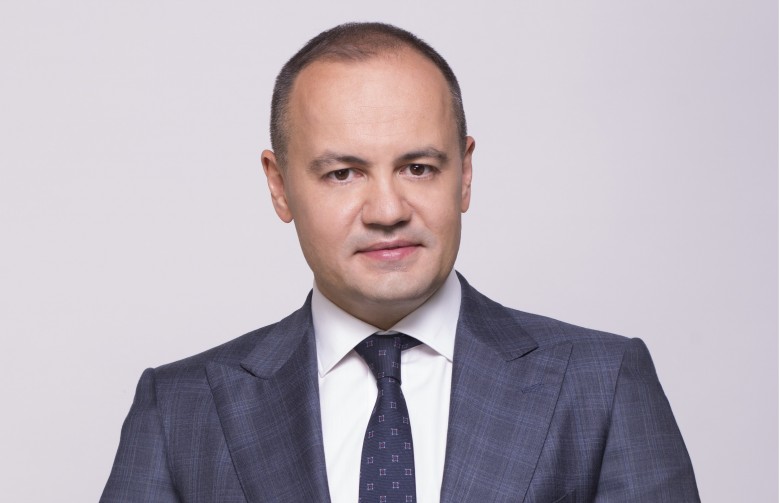Maxim Timchenko: Ukraine’s energy liberalisation opportunity should not be missed
The reform and modernisation of Ukraine’s energy market is vital to the future of Ukraine, but can also play a very important role in the energy security and economic development of the region, and the wider European continent, writes Maxim Timchenko.

The reform and modernisation of Ukraine’s energy market is vital to the future of Ukraine, but can also play a very important role in the energy security and economic development of the region, and the wider European continent, writes Maxim Timchenko.
Maxim Timchenko is CEO of Ukraine’s largest energy generator, DTEK.
Ukraine only has a small window of opportunity to deliver these benefits before grid wear and tear becomes critical and prospective investors lose faith with the reform agenda.
Household electricity tariffs in Ukraine – some of the lowest on the European continent – have been set centrally by the government for many years.
While ensuring low household energy bills, this system has led to systemic underinvestment in a soviet-era energy grid that has reached 80% wear and tear; and which only has a remaining operating life of 10 years, according to the National Commission for State Regulation in Energy Utility Services.
This situation is compounded by ongoing disruptions to gas and energy imports from the Russian Federation.
All of this requires a nation-wide upgrade of energy infrastructure, from production facilities, to replacing the electricity and transportation grids, to promoting renewable energy. None of which can be achieved without a very substantial investment – estimates range between €85-90bn.
Even with very significant support from the European Union, and other international financial institutions, this cannot be met by Government alone, and the bulk of this investment will have to be provided by the private sector, both domestic and international.
For this to happen investors need to have confidence that they will be able to secure a fair, long-term return on their investment, and this means that the process of liberalising the energy sector has to completed.
That is not only the position of DTEK, but also the agreed position of the Ukrainian government, the EU and the IMF, upon which a substantial amount of aid funding from these organisations is already conditional.
Whilst substantial progress has been made by the Government over the past few years, including the appointment of a new independent regulator and the adoption of the 3rd Energy package compliant Electricity Market Law, a number of measures need to be urgently undertaken by the Ukrainian government and energy market participants.
Although the legislative and regulatory framework is largely in place, the devil is in the detail. In practical terms this means the Government, the Regulator, transmission system operator and other bodies need to approve and implement about 100 secondary legislative acts.
These include legislation addressing the intra-day electricity market, day-ahead electricity market, how distribution will be regulated post-unbundling, and how to prevent non-payments within the wholesale electricity market. We cannot afford any further delays in this process.
The transition from a soviet-style state-owned and run energy system to one based on free market principles means that the process of corporatization and the unbundling of state-owned energy companies still needs to be completed.
There is also a major issue with the €1 billion of debt in the wholesale electricity market generally because of non-payments by various state-owned utilities. This debt needs to be honoured, and regulations put in place to prevent this situation arising in the future, if investment levels are to be increased and we are to maximise the possibilities for attracting desperately needed international investors.
To enable a modern, well-functioning Ukrainian energy market – that allows for the purchase and sale of electricity in the open market and ensures that supply and demand ultimately determines the price – we need to harness the benefits of modern technology.
Our goal is to create a reliable energy market and power exchange by July 2019. This will also require a significant boost in investment both in software and hardware of the energy transmission and distribution systems.
One of the main challenges in a country where energy prices have been effectively cross-subsidised for years, aggravated by a fundamental lack of understanding of the importance and benefits of energy market liberalisation, is that it has become highly politicised.
This has already led to a significant slowdown in the energy reform process, and is putting in jeopardy the country’s access to the international finance needed to modernise our energy infrastructure. Building public awareness of the benefits of this process therefore has a vital role to play in ensuring that Ukrainian citizens understand that whilst investors stand to benefit from this process, the main beneficiaries will be the Ukrainian people.
DTEK is well prepared to make the required operational changes to support Ukraine’s new energy market a success, but – like external investors – cannot bring its resources to bear until the regulatory framework is completed.
We therefore expect that other stakeholders with more influence on this phase of the reform – be they our national politicians, or representatives of relevant international institutions such as the EU and IMF – continue to encourage and promote speedy completion of the reform agenda.
It is vital that the pace of energy market reform in Ukraine, which has slowed recently, is accelerated.
